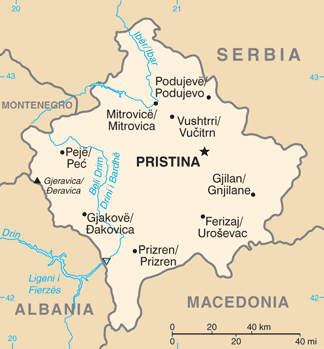Serbia on Thursday lifted the combat readiness alert for its troops that it enacted on Monday as ethnic Serbs in northern Kosovo agreed to remove barriers they erected in protest against authorities in Pristina.
As the Serbs began dismantling roadblocks on Thursday, Kosovo also reopened a border crossing with Serbia that it had closed. The roadblocks were erected this month after a former ethnic Serb police officer was arrested for allegedly attacking an election commission office.

Kosovo also stepped up its police presence in the north Serb-majority areas, raising tensions even more. When Serbia placed its military on high alert earlier this week, it said they were ready to deploy troops to Kosovo to protect ethnic Serbs, but tensions appear to have eased, at least for now.
The Serbs who populate the northern areas don’t recognize Kosovo as a country and don’t consider the authorities in Pristina as their government. Most of Kosovo’s population outside of the northern areas are ethnic Albanians.
Tensions have been high in Kosovo since the summer when Pristina tried to enact a law that would ban Serbia-issued license plates. The Serbs in northern Kosovo still use license plates and other documents issued by Belgrade and are against the idea of using Pristina-issued plates.
Pristina is backed by NATO and the alliance’s force in Kosovo, known as KFOR, stepped up its patrols in the north due to the recent tensions. There are about 3,700 NATO troops deployed in Kosovo under KFOR, including over 600 US troops. NATO has had a presence in the region since its 1999 bombing campaign against Serbia that resulted in the creation of the state of Kosovo, which formally declared independence from Serbia in 2008 but isn’t recognized by many countries.


